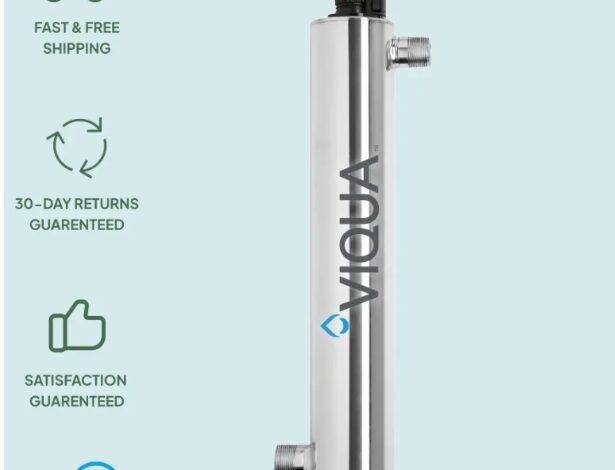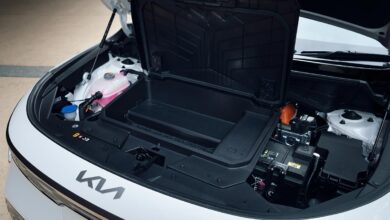UV Water Filters: A Complete Guide to Safe and Clean Drinking Water

Ultraviolet (UV) water filters are an advanced and highly effective solution for purifying water. By using ultraviolet light to kill harmful microorganisms, UV water filters provide safe drinking water free from bacteria, viruses, and other pathogens. In this guide, we explore how UV water filtration works, its benefits, and why it is an essential choice for households seeking high-quality water purification.
What Are UV Water Filters?
UV water filters are purification systems that use ultraviolet light to disinfect water. Unlike traditional filters that remove particles and contaminants, UV filters specifically target biological contaminants like bacteria, viruses, and protozoa. This technology ensures that the water you drink is microbiologically safe without the use of chemicals, preserving the natural taste of the water.
How UV Water Filtration Works
- Ultraviolet Light Exposure: The filter uses a UV lamp that emits light at a wavelength of 254 nanometers (nm). This UV-C light is highly effective at penetrating the cells of microorganisms.
- DNA Disruption: Once exposed to UV-C light, the DNA of the microorganisms is disrupted, rendering them unable to reproduce or cause infections.
- Immediate Disinfection: The process is instantaneous, meaning that as water passes through the UV chamber, it is disinfected in real-time without the need for any contact time or chemicals.
Key Features of UV Water Filters
- Chemical-Free Disinfection: No harmful chemicals or additives are used in the purification process.
- Instantaneous Purification: UV water filters work immediately as water passes through the system.
- High Efficiency: UV light effectively eliminates over 99.99% of pathogens, ensuring safe drinking water.
- Environmentally Friendly: UV filters do not produce harmful byproducts, unlike chlorine-based disinfectants.
Benefits of UV Water Filters
Highly Effective Against Microorganisms
UV water filters are designed to eliminate harmful microorganisms that traditional filtration methods might miss. They are especially effective against bacteria such as E. coli, viruses like hepatitis, and protozoa such as Giardia and Cryptosporidium. These contaminants can lead to serious health problems, making UV filters a crucial choice for households concerned about biological impurities in their water supply.
Maintains Water’s Natural Taste
Unlike chemical treatments, such as chlorine, UV filtration does not affect the taste or smell of water. It simply disinfects, allowing the natural flavors of the water to remain unchanged. This makes UV filters ideal for those who prefer pure-tasting water without chemical alterations.
Chemical-Free and Safe
One of the main advantages of UV water filtration is that it is a chemical-free method of disinfection. This not only makes it safer for consumers but also eliminates the risks associated with chemical byproducts, such as trihalomethanes (THMs), which can form when chlorine interacts with organic matter in water.
Energy Efficient
UV water filters are energy-efficient systems, typically using the same amount of power as a standard light bulb. This means they can operate continuously without adding significantly to your energy bills, providing both effective disinfection and cost savings.
Low Maintenance
Once installed, UV water filters require minimal maintenance. The primary task is to replace the UV lamp once a year to ensure continuous and effective purification. Additionally, UV systems do not rely on mechanical filtration, which means fewer components to clean or replace.
Factors to Consider When Choosing a UV Water Filter
Flow Rate
UV water filters are available in various sizes, with different flow rate capacities. The flow rate is measured in gallons per minute (GPM) and should be chosen based on household water usage. For larger households, a higher GPM system may be necessary to meet daily water demands.
UV Dose
The UV dose, measured in millijoules per square centimeter (mJ/cm²), determines the effectiveness of the system. A higher dose ensures better disinfection. Most household UV systems provide a dose of at least 40 mJ/cm², which is sufficient for most residential water sources.
Water Quality
UV filters work best with water that is relatively free of particles and sediment. If your water contains high levels of turbidity or sediment, it may be necessary to install a pre-filter to ensure that the UV light can effectively penetrate the water and disinfect it.
Ease of Installation
Look for a system that is easy to install and maintain. Some UV water filters require professional installation, while others come with DIY installation kits that can be set up with basic plumbing skills.
Certifications
Ensure that the UV water filter you choose is certified by relevant bodies, such as the NSF/ANSI standards, to guarantee the quality and safety of the product.
Installing a UV Water Filter: A Step-by-Step Guide
Installing a UV water filter is a straightforward process, but following the proper steps ensures maximum efficiency and safety. Here is a basic guide for installing a point-of-use UV system:
- Turn Off the Water Supply: Shut off the main water supply to prevent any leaks during installation.
- Mount the UV Filter: Secure the UV unit on the wall or under the sink, depending on the system design.
- Install Pre-Filters: If necessary, install sediment or carbon pre-filters to ensure that the water entering the UV system is clear of particles.
- Connect the Plumbing: Attach the inlet and outlet water lines to the UV system.
- Insert the UV Lamp: Carefully insert the UV lamp into the system’s chamber, making sure not to touch the bulb with your hands, as oils from your skin can damage it.
- Turn On the Water Supply: After all connections are secure, turn the water supply back on and test the system for leaks.
- Power On the UV Lamp: Once everything is connected, power on the UV lamp and let the system run.
Frequently Asked Questions (FAQs)
How effective are UV water filters?
UV water filters are highly effective at killing 99.99% of harmful microorganisms, including bacteria, viruses, and protozoa. However, they do not remove particles, chemicals, or heavy metals from the water, which may require a separate filtration system.
Do UV filters require electricity?
Yes, UV filters need electricity to power the UV lamp. Most household systems use minimal electricity, equivalent to a 40-watt light bulb, making them energy-efficient.
Can UV water filters remove chlorine?
No, UV water filters do not remove chlorine or other chemical contaminants. If your water contains chlorine, it’s recommended to use a carbon pre-filter in conjunction with the UV system to remove chemical impurities.
How often do I need to replace the UV lamp?
The UV lamp should be replaced annually, even if it is still working. Over time, the UV output decreases, and replacing the lamp ensures that the system continues to disinfect water effectively.
Conclusion
UV water filters, such as those offered by One Green Filter, provide an efficient, chemical-free method for disinfecting water and ensuring it is safe to drink. Whether for a large household or an individual traveler, UV filtration systems, like those from One Green Filter, are available in various types to suit different needs. With minimal maintenance, energy efficiency, and superior performance in eliminating microorganisms, One Green Filter’s UV water filters are an essential addition to any water purification setup.
Keep an eye for more news & updates on UsaTechMagazine!





